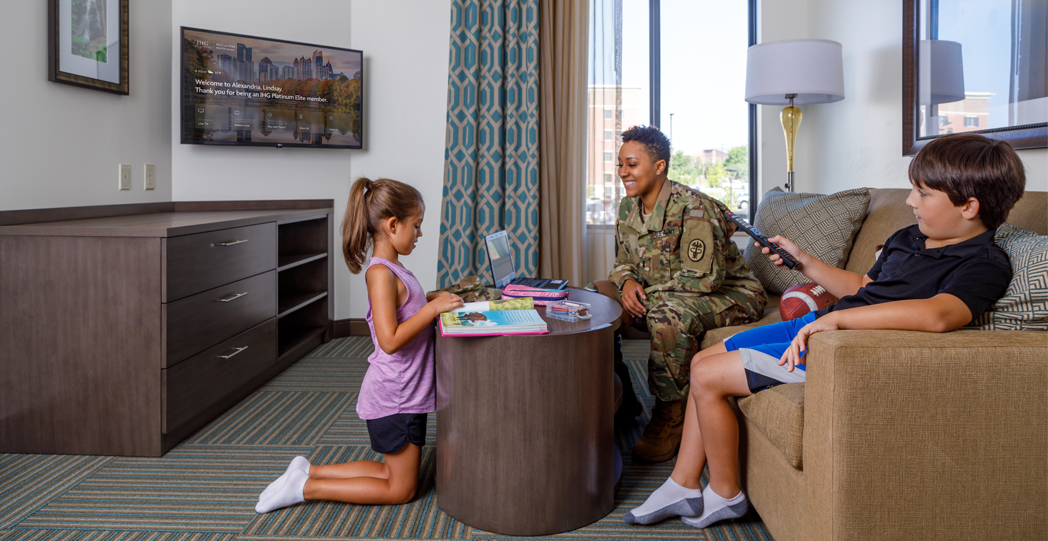Chances are, you know them—or you are one of them. We’ve grown up hearing the term “military brat.” It’s the kids who enroll in a school for a year or two, then hop across the country or move internationally to another school. They have experiences that many grade school kids can only dream about and challenges their friends likely don’t understand.
The term “military brat” is an endearing one. The use of “brat” has nothing to do with the definition of a poorly behaved child. There’s actually a centuries-old history behind the name.
As we celebrate the Month of the Military Child this April and National Military Brats Day on April 30, let’s dive into what makes military brats so special.
Where did that nickname originate?
Military brats are a unique group of kids who are, or at one time were, children of service members. The origins of the term have deep roots, with references going back to the early 18th century.
A play called “The Recruiting Officer” in 1707 refers to military families who lived outside of the barracks as “brats and wives.” Although the connection is not crystal clear, it is most likely the first time “brat” children were associated with the military.
Toward the end of the 18th century, the term “barrack rat” also referred to British military children living in army barracks. It’s possible that the two words eventually blurred into one.
In the 1920s, families who accompanied service members on overseas assignments were known as a British Regiment Attached Traveler, or BRAT. Eventually, this acronym became a popular reference to military children. The name stuck.
Regardless of when and how it started, it has become an affectionate name for these generally resilient and patriotic military children.
The average ‘military brat’
Family is an important component to military life. Over the years, more service members began having more children at younger ages. Today, the number of military children actually exceeds the number of U.S. service members, and approximately 1 out of every 25 Americans is a military brat.
In just a few short years, military brats have likely lived in more places and attended more schools than most civilian adults will in their lifetimes. On average, these kids attend 4 to 12 different schools and move about every two years.
That direct exposure to military life leads many children to later serve in the military. Children whose parents are service members are two times more likely to join the military themselves. Recent reports showed that 80 percent of U.S. troops had some family military connection.
Unique challenges
Of course, there are pros and cons to constantly being on the move. Children of military families face challenges that other children their age might never know.
Moving homes and schools frequently can create an unstable environment. It can be difficult to make new friends and start over with classes or activities.
But many military children rise to the occasion, working hard to exceed expectations. And today, technology can help friends keep in touch no matter where they go.
When a parent is deployed, a child often reflects the behavior of the parent who remains home. Children worry about the safety of their parents. It’s important to recognize signs of anxiety or depression.
However, military children also show immense strength and fiercely support their parents who serve. They know their parents are serving and sacrificing for our country.
Special traits
Growing up with such a unique lifestyle contributes to many military brats developing special traits. Generally, these children are well behaved, respectful, and adaptable.
Military children recognize the selflessness and service of their parents. In turn, these children often are involved in their school and community, volunteering and serving others.
They show incredible resilience. Despite frequent moves—or because of them—military brats develop strong, healthy relationships with others. They are compassionate and tolerant children who have learned to deal with adversity at a young age. They also are very resourceful.
While moving across the country and overseas, military brats experience life and culture from other parts of the world. They develop a greater understanding and appreciation for cultural diversity and global events. This shapes their lives as they grow.
The situations military children experience also help them to build positive characteristics as adults. Military brats are often more punctual, adaptable, optimistic, confident and compassionate.
Recognizing the service of military brats
The IHG® Army Hotels team is honored to serve military families at its hotels. Many of our staff have experienced military life and understand the unique challenges associated with it. We recognize the strength of these military brats and thank them for their service.





